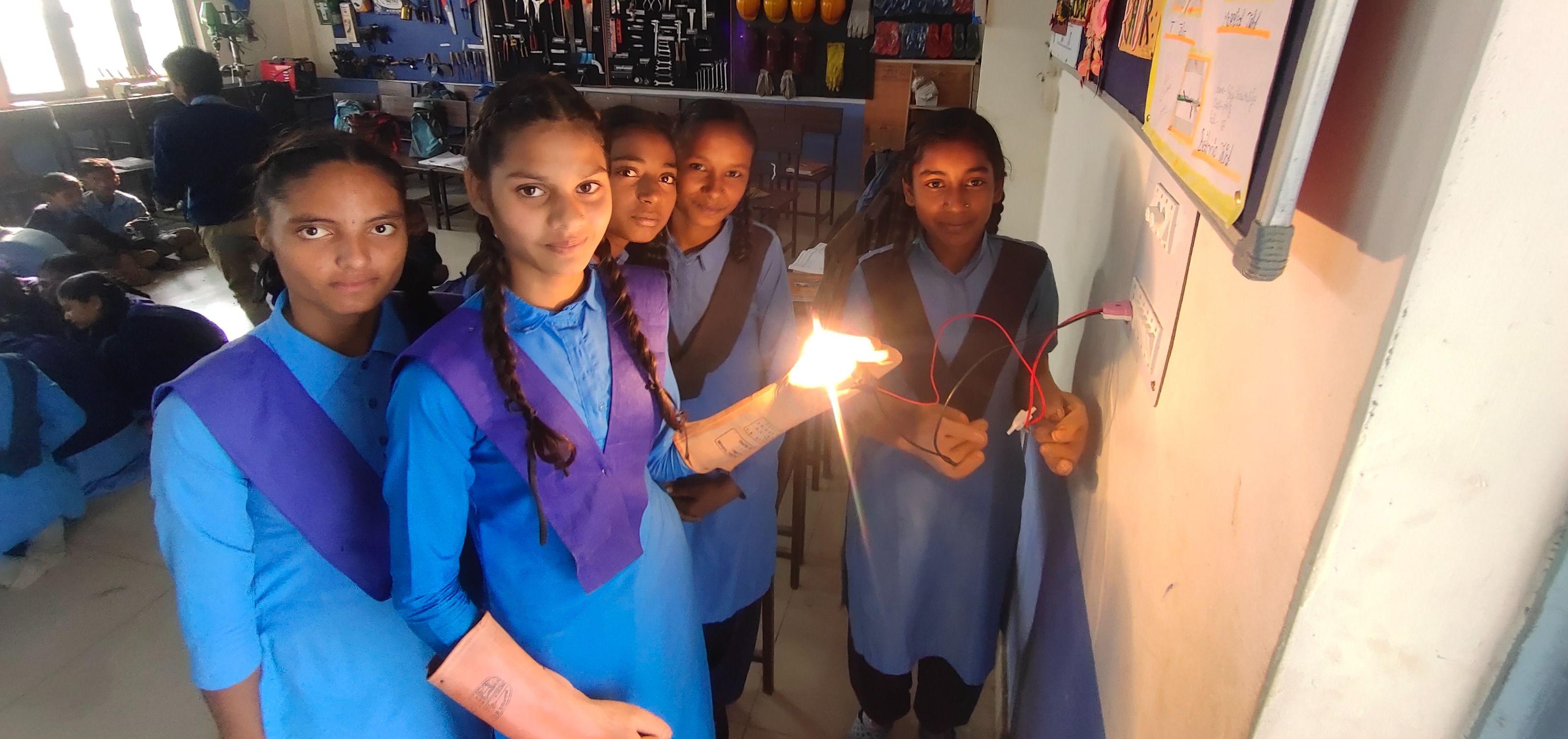Multi Skills Foundation Course in Schools
The project in collaboration with Lend a Hand India (LAHI) aims to address the issues related to access & quality delivery of vocational courses in secondary/ higher secondary schools in the state of Uttarakhand and Rajasthan.
Key Sector
Education
Location
Uttrakhand & Rajasthan
Partners
Lend a Hand India
Date
November 2019 to January 2023
Model in
2 states, 20 schools
Scaled
up to 2124 schools covering 2,35,000 students
75%
of students are offered full-time jobs after completing their internship
The current delivery of Skill Education programs is mostly theoretical, lacks hands-on training, and is not linked to job market needs. It does not equip students with the relevant skills for daily jobs and life skills in India.
What We Accomplished
Vocational education in multi-skill trades including General Engineering, Energy and Environment, Food Processing / Health Care, and Gardening/Landscaping were introduced in 20 schools benefiting over 2,200 students. Notably, 3 out of every 4 interns secured full-time job offers, more parents supported non-traditional career choices, and students gained sufficient exposure to make informed career decisions. LAHI's role led to policy changes, scaling up vocational education in the states.
How We Did It
The project was implemented in two key phases. Firstly, it introduced vocational education in Secondary/Higher Secondary schools through the creation of model vocational schools and demonstrated its impact. Additionally, vocational subjects replaced Arts or Sanskrit as the sixth subject for students, with higher marks in Social Studies or Vocational Subjects being considered in final exams. Secondly, the project scaled vocational education across the state by providing technical and project management support and sharing best practices from the pilot program.
Model the Vocational education program in 20 Secondary/ Higher Secondary schools
Provide in-house technical management expertise within the state for implementation
Support the state government to scale up vocational education to 2000+ schools in the state by providing project management support.
Challenges Faced
Pandemic
Due to the COVID pandemic, there were several challenges in terms of project implementation. The team took the support of technology wherever possible and implemented Skills@Home activities to ensure continuity for the students.
Traditional Women-Only Roles
The multi-skill foundation course works with students in a gender-agnostic manner. Encouraging girls to break away from traditional roles/courses or convincing parents to send their girls to job fairs has been a challenge that the team is continuously striving for.
